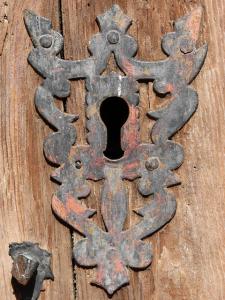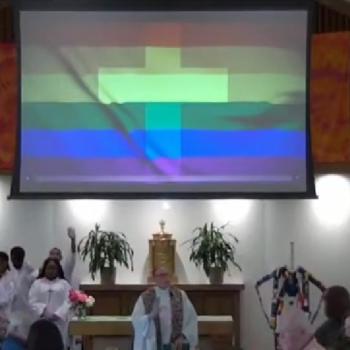The concept of authority is an intriguing one. Whether it’s government authorities, religious authorities, medical authorities, or parental authorities, we all deal with this concept daily. But what is authority? Particularly, what constitutes authentic Christian authority within the Church? Recently, my good friend over at Rational Animal, Matthew Graham, wrote an article on Protestant religious authority. Please find the article by clicking here. Matt contends that Protestants do have religious authority, just not an infallible one.
In this article, I examine the Catholic concept of religious authority. What is religious authority? Who has this authority? Why is religious authority crucial to the truth claims of Christianity? In short, I show that Jesus gave the apostles the authority to bind and loose. These same apostles appointed bishops to succeed them, also given the power to bind and loose. Those bishops then appointed other bishops to succeed them and gave them the power to bind and loose.
This concept, known as apostolic succession, became foundational in both the fight against heresy and the ecumenical councils called to address individual heretics. In the authority to bind and loose exists the authority to define beliefs. The authority to end debate. The authority to set the boundaries of orthodoxy. Within apostolic succession contains the authority to declare those who go beyond the determined boundaries anathema. Therefore, apostolic succession is true religious authority, as it binds others to its authoritative decisions.
The Authority to Bind and Loose
Does the scripture support apostolic succession? The scripture teaches Jesus gave his apostles authority to bind and loose. First to Peter:
And I tell you, you are Peter, and on this rock I will build my church, and the gates of hell shall not prevail against it. I will give you the keys of the kingdom of heaven, and whatever you bind on earth shall be bound in heaven, and whatever you loose on earth shall be loosed in heaven. – Matthew 16:18-20
Then, to the other apostles:
Truly, I say to you, whatever you bind on earth shall be bound in heaven, and whatever you loose on earth shall be loosed in heaven. – Matthew 18:18
To bind and loose in the sense Jesus uses above refers to authority exercised by steward of the house of David. In the book of Isaiah, Eliakim receives this authority from God. The language used in Isaiah parallels the language used by Jesus in Matthew.
In that day I will call my servant Eliakim the son of Hilkiah, and I will clothe him with your robe, and will bind your sash on him, and will commit your authority to his hand. And he shall be a father to the inhabitants of Jerusalem and to the house of Judah. And I will place on his shoulder the key of the house of David. He shall open, and none shall shut; and he shall shut, and none shall open. – Isaiah 22:20-22 [emphasis added]
The “him” in the above verse refers to the previous steward, Shebna. For his unfaithfulness, God took Shebna’s authority and gave it to Eliakim. Clearly, the authority Shebna and Eliakim wield is civil, not religious. Jesus, by His authority, transforms the absolute civil authority of the steward of the house of David into absolute religious authority of the kingdom of God. This religious authority, first wielded by Peter and the other apostles, did not die with them.
Passing On Authority
Moreover, we see in the book of Acts and the epistles of the New Testament the apostles appointing or ordaining (laying on hands) others (Acts 13:3, Acts 14:2, 1 Timothy 4:14, 2 Timothy 1:6, Titus 1:5). The question is, did the apostles pass on the authority to bind and loose or did this authority die with them? Early Christian writers did not think so. Turning to them, we read:
Our apostles knew through our Lord Jesus Christ that there would be strife for the office of bishop. For this reason, therefore, having received perfect foreknowledge, they appointed those who have already been mentioned and afterwards added the further provision that, if they should die, other approved men should succeed to their ministry. St. Clement of Rome, Letter to the Corinthians 44 [emphasis added]
And:
[I]t is incumbent to obey the presbyters who are in the Church—those who, as I have shown, possess the succession from the apostles; those who, together with the succession of the episcopate, have received the infallible charism of truth, according to the good pleasure of the Father. But [it is also incumbent] to hold in suspicion others who depart from the primitive succession, and assemble themselves together in any place whatsoever, either as heretics of perverse minds, or as schismatics puffed up and self-pleasing, or again as hypocrites, acting thus for the sake of lucre and vainglory. For all these have fallen from the truth. St. Irenaeus, Against Heresies 4:26:2. [emphasis added]
Therefore, with the witness of scripture, and the confirmation of early Christian writers, we see that the authority to bind and loose passed on to those bishops appointed by the apostles, these bishops then passed this authority onto their successors. Eventually, the exercise of this authority took the form of ecumenical councils. These councils defined orthodox beliefs and set orthodox boundaries, while condemning heresy. The Church bound all to conciliar decisions on pains of anathema.
The Authority Councils Confirms Apostolic Succession
Moreover, what authority did the early council fathers possess that led them to believe others bound by their conciliar decisions? Answer: the religious authority granted them through apostolic succession. The early council fathers of Nicaea, 1 Constantinople, Ephesus, Chalcedon, 2nd and 3rd Constantinople, and 2nd Nicaea all held their authority on matters of belief as binding on all members of the Catholic Church. The binding language used in council documents demonstrates a sense of real religious authority, an expectation of assent. Councils were not mere theological think tanks or bible conferences. Failure to comply with a council’s decision bore real and lasting (eternal) consequences.
For example:
…affirming that the Son of God is subject to change or alteration these the catholic and apostolic church anathematizes. – Nicaea, 325 [emphasis added]
But if the charge brought against the bishop is of an ecclesiastical kind, then the characters of those making it should be examined, in the first place to stop heretics bringing charges against orthodox bishops in matters of an ecclesiastical kind. (We define “heretics” as those who have been previously banned from the church and also those later anathematized by ourselves: and in addition those who claim to confess a faith that is sound, but who have seceded and hold assemblies in rivalry with the bishops who are in communion with us.). – 1 Constantinople, 380 [emphasis added]
Any who dare to compose or bring forth or produce another creed for the benefit of those who wish to turn from Hellenism or Judaism or some other heresy to the knowledge of the truth, if they are bishops or clerics they should be deprived of their respective charges and if they are laymen they are to be anathematized. – Ephesus. 431 [emphasis added]
More
Since we have formulated these things with all possible accuracy and attention, the sacred and universal synod decreed that no one is permitted to produce, or even to write down or compose, any other creed or to think or teach otherwise. As for those who dare either to compose another creed or even to promulgate or teach or hand down another creed for those who wish to convert to a recognition of the truth from Hellenism or from Judaism, or from any kind of heresy at all: if they be bishops or clerics, the bishops are to be deposed from the episcopacy and the clerics from the clergy; if they be monks or layfolk, they are to be anathematized. Chalcedon, 451 [emphasis added]
We confessed that we held to be condemned and anathematized all those who had been previously condemned and anathematized by the catholic church and by the aforesaid four councils. 2nd Constantinople, 553 [emphasis added]
So now that these points have been formulated by us with all precision in every respect and with all care, we definitely state that it is not allowable for anyone to produce another faith… if they are bishops or clerics, are deprived of their episcopacy or clerical rank, and if they are monks or layfolk they are excommunicated. 3rd Constantinople, 680-681 [emphasis added]
In the case of those whom they sent away under an anathema, we also anathematize them, those whom they suspended, we also suspend; those whom they excommunicated, we also excommunicate; those whom they placed under penalties, we also deal with in the same way. 2nd Nicaea, 787 [emphasis added]
For those unfamiliar with anathema, anathematized, and excommunicated, the basic definition means to cut one off from the Church. To remain in such a state is to risk one’s soul. This is the power to bind and loose. No other understanding or interpretation of the above declarations bear out.
The Final Word (On What Apostolic Succession is NOT)
To conclude, a quick mention on what apostolic succession is not. In my discussions with Matthew, he asked what differences exist between the apostles and those who succeeded them. According the Catechism of the Catholic Church paragraph 860, one untransmutable aspect of the office of apostle is witness of the resurrection of Jesus. Therefore, the apostles stand as foundation stones of the Church. Jesus granted each apostle the power to perform miracles. They also had universal jurisdiction over the whole Church.
Why all this discussion of religious authority? Does it matter in the grand scheme of things who gets the final say in the Church? If we believe Jesus, then yes. He promised to send the Holy Spirit to lead His people into all truth:
When the Spirit of truth comes, he will guide you into all the truth, for he will not speak on his own authority, but whatever he hears he will speak, and he will declare to you the things that are to come. John 16:13
Couple the above promise of Jesus with the below words of St. Clement of Rome, and the need becomes clear.
Our apostles knew through our Lord Jesus Christ that there would be strife for the office of bishop. For this reason, therefore, having received perfect foreknowledge, they appointed those who have already been mentioned and afterwards added the further provision that, if they should die, other approved men should succeed to their ministry. St. Clement of Rome, Letter to the Corinthians 44 [emphasis added]
Therefore, to safeguard the Church in the truth, the apostles passed on their authority to bind and loose. This authority ends debates and sets the boundaries of orthodoxy. Those who step out of bounds find themselves outside the bounds of the Church.
Thanks for Reading!
If you enjoy my writing and want to support my work, please consider donating a monetary gift of any size or quantity by clicking here. Thank you!
Read my other writing here.
Please click the link below to join.
Voices of the Faithful in the Synod on Synodality
Please make your voice heard.
I Support Church Teaching in the Synod of Synodality

Therefore.












